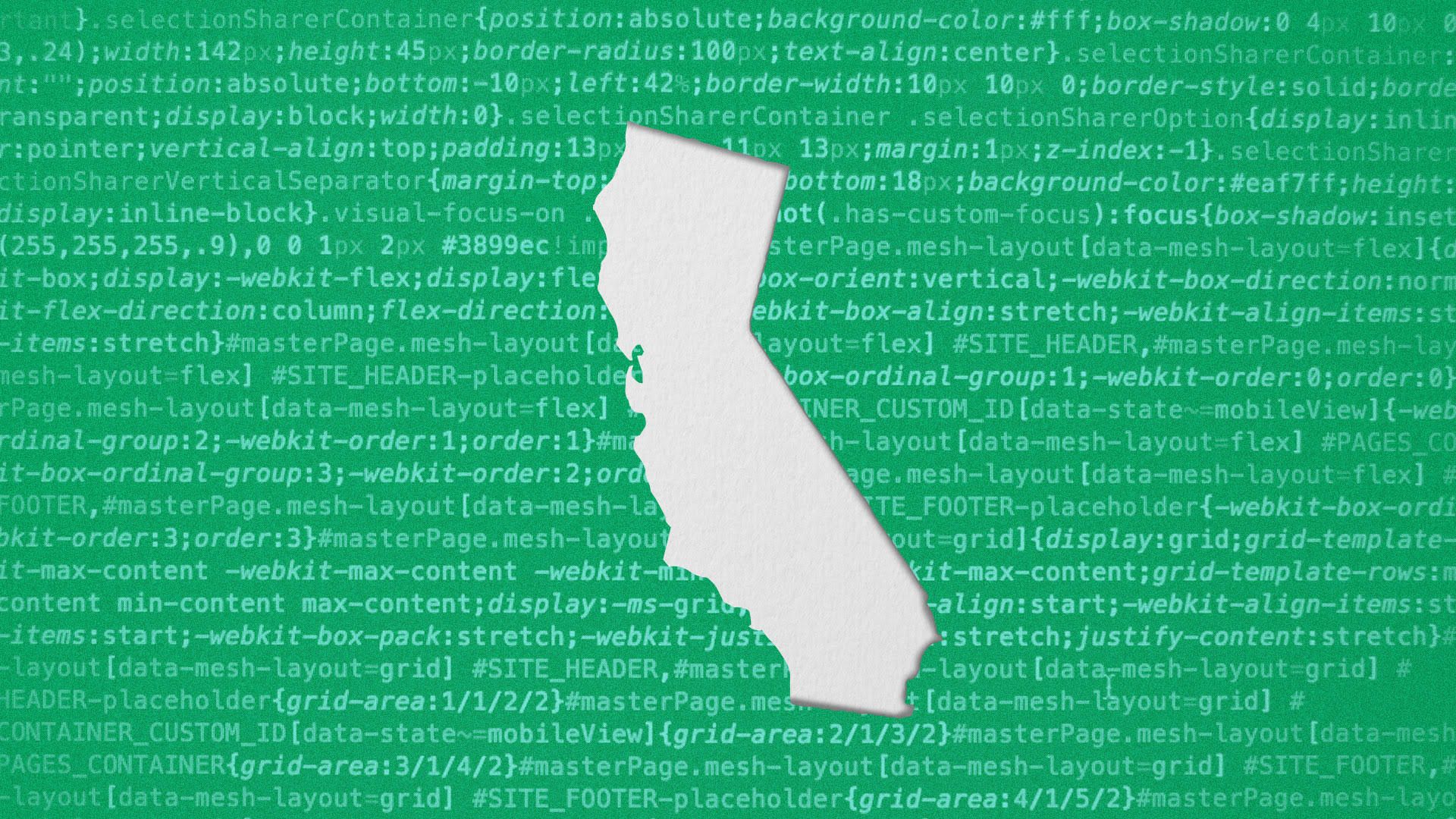
Illustration: Eniola Odetunde/Axios
California has two new laws on the books aimed at reining in tech giants. Some of the biggest companies they're aimed at plan to dodge them.
Why it matters: Powerful, moneyed tech firms are always going to have the will and the resources to try to evade regulation. That puts the onus on legislators to craft smarter, tighter laws with fewer loopholes.
Details:
- California's Assembly Bill 5 (AB5) codifies a 2018 California Supreme Court ruling making it harder for companies to treat their workers as independent contractors rather than employees.
- The California Consumer Privacy Act (CCPA) lets state residents find out what data certain companies have collected about them and even ask for it to be deleted.
- Both took effect with the new year.
Yes, but: Some of the companies that stand to be most affected by each of the laws are looking to get around fully complying with them.
- Uber and Lyft say they're simply platforms for matching riders and drivers and aren't themselves in the transportation business — so they won't reclassify their drivers as employees. To the extent they're changing practices as a result of the law, it's to strengthen their case that they don't have to comply.
- Uber, Lyft and DoorDash are also pushing a ballot initiative to exempt ride-sharing companies from AB5 altogether, and Uber joined with Postmates to sue California over the law.
- Facebook maintains that CCPA doesn't apply to its tracking of users around the web because the company doesn't sell their data, although it does make money from marketers that rely on it to target ads.
The other side: Even amid the hints that the laws may not deliver all their intended effects, other signs of unintended consequences are emerging.
- Companies including Vox Media have cut off California-based freelance work as a result of AB5.
- Meanwhile, critics of CCPA say burdens related to complying could disproportionately fall on smaller companies. There are several criteria that can qualify a business for having to comply; one is collecting information from at least 50,000 people or devices, a threshold that means even some very small businesses without access to Silicon Valley's resources, lawyers or compliance officers will fall under CCPA.
The other coast: Regulators in D.C. are carefully watching the moves in California.
- Federal lawmakers trying to craft broad federal privacy legislation could learn from the gaps in California's rules that companies are exploiting, said Michelle Richardson, director of the Privacy and Data Project at the Center for Democracy and Technology (CDT).
- "You don't want to just put the decision making on whether [data] is sold to a third party, but apply it to the sharing, collection and use of data," she told Axios. "That's how you're going to get the giant companies."
The big picture: Flouting or finding loopholes in laws is nothing new for Silicon Valley. Uber, Lyft and Airbnb all grew huge by sidestepping laws and ordinances that might have kept them out of some lucrative markets.
- In those cases, tech companies were finding workarounds to laws written for a pre-internet age. Now, they're angling to pull off the same trick with laws written for them.
Our thought bubble: Tech giants will continue to have more resources, craftier lawyers and a more unified sense of purpose than the regulators and legislators looking to bring them to heel. As long as there's a policy that could upend how they do business, they'll look for a way through or around it.
What's next: These conflicts may come to a head this summer.
- That's when Wedbush Securities analyst Daniel Ives told Axios he expects the Uber-Postmates litigation over AB5 to end up in California's Supreme Court.
- And it's when California officially starts enforcing CCPA. Attorney general Xavier Becerra will then have to decide whether to bless or penalize practices like Facebook's handling of web tracking.
Go deeper:
